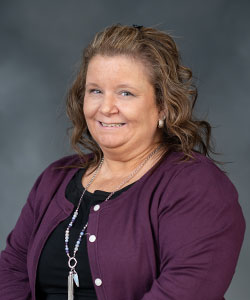Know Before You Go!
March 6, 2014
What Type of Healthcare Setting is Right for You?
Knowing where to turn for healthcare can be confusing because there are many options available, all offering what seem to be similar services. People might wonder if it is necessary to have a primary care physician (PCP) versus going to an urgent care or convenience care clinic. They may also struggle with deciding when an issue warrants a visit to a hospital’s emergency department. Listed below are descriptions for different types of care to help minimize the confusion.
A primary care physician’s office, which usually includes physician assistants, nurses, nurse practitioners, technicians and clerical staff, builds relationships with patients, truly getting to know their healthcare goals and needs. The most valuable benefit of having a primary care doctor is that he or she concentrates on health maintenance and managing chronic illnesses like diabetes. GBMC PCP offices offer extended weekday hours and morning office hours on Saturdays. Most of GBMC’s PCP offices function as patient-centered medical homes, emphasizing prevention and wellness rather than treating patients when they’re already sick. Although PCPs are very focused on wellness, they also build time into their schedules to accommodate patients when they are sick as well as to treat minor urgencies, such as sprains. Additionally, nurse practitioners act as extensions of the physicians to offer convenient, timely healthcare access.
Urgent care clinics are staffed by a team similar to that of a PCP office, but they typically treat conditions such as sprained ankles, cuts and fevers. They are more focused on episodic care (when a person is already sick or has a minor injury) rather than prevention or overall wellness. Urgent care clinics have late hours, are open on weekends, accept walk-ins and often have other service capabilities such as X-rays, lab work and prescriptions available onsite for patient convenience.
Convenience care clinics are located in pharmacies or grocery stores. They are not always staffed by a physician, but instead by nurses or assistants who treat conditions like earaches, sore throats and flu-like symptoms. These clinics typically also offer common vaccinations, like the flu shot, on a walk-in basis.
Hospital emergency departments are meant to treat more critical health problems, which may include heart attack, stroke, allergic reaction, major injury, etc. If someone is experiencing symptoms consistent with the above conditions, or has suffered a severe injury, it’s important to call 911 and get to the closest ED.
“Finding a PCP is often a good place to start. This will ensure patients have a go-to person who is aware of their overall health status and maintains all of this information on their electronic health record,” explains Mark Lamos, MD, President and Medical Director of Greater Baltimore Medical Associates and Internal Medicine physician at GBMC. “Fortunately for patients, there is always a healthcare option available to handle their individual situation.”





